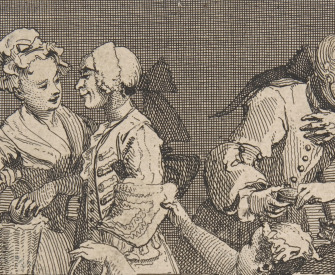Hungry Parasite:
The gods confound the man who first found
out
How to distinguish hours! Confound him too
Who in this place set up a sundial
To cut and hack my days so wretchedly
Into small portions! When I was a boy,
My belly was my sundial: one more sure,
Truer, and more exact than any of them.
This dial told me when it was time
To go to dinner, when I had anything to eat;
But nowadays, why even when I have,
I can’t fall-to unless the sun gives leave.
The town’s so full of these confounded dials,
The greatest part of its inhabitants,
Shrunk up with hunger, creep along the
streets.
From The Boeotian Woman. Aulus Gellius preserved these lines in his Attic Nights, believing them to have been written by the Roman comic playwright Plautus. The speech has been subsequently cited as evidence that sundials were common in Rome by the second century BC. The earliest known upright time-reckoning device dates from around 3500 BC, and Herodotus, writing in the fifth century BC, stated that “knowledge of the sundial and the gnomon and the twelve divisions of the day came into Greece from Babylonia.”
Back to Issue



